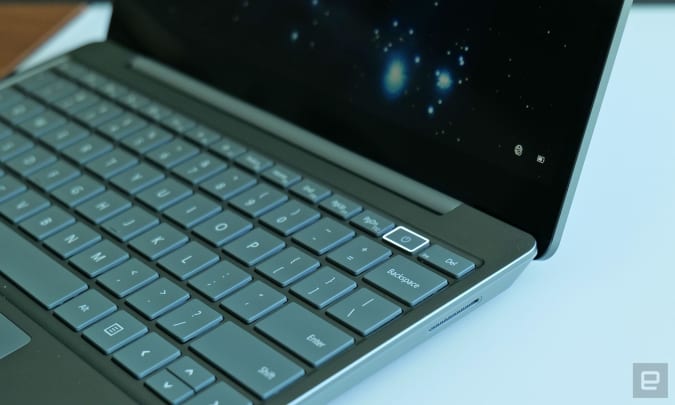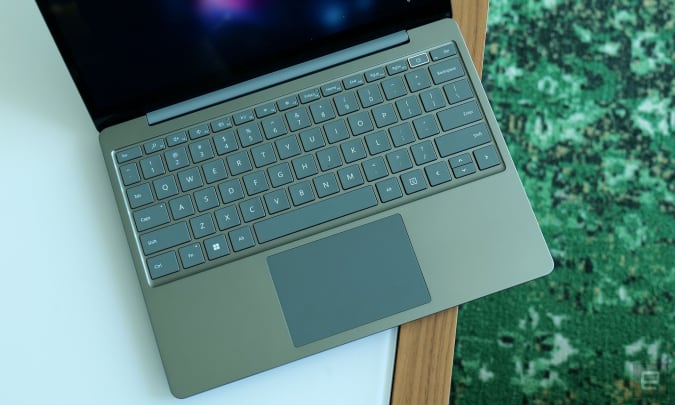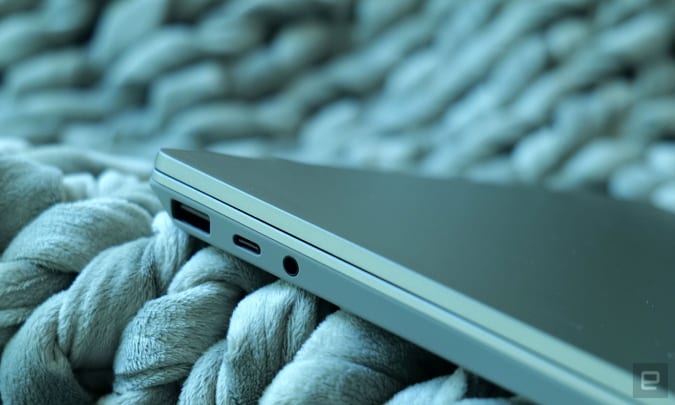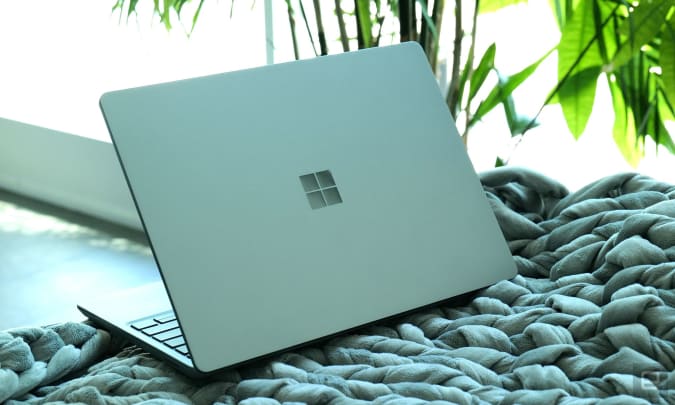The Surface Laptop Go line holds an interesting position in Microsoft’s notebook lineup. It’s not quite as cheap or portable as the Surface Go 3 and it’s not as powerful or flexible as the Surface Studio. But a recent component refresh has added new life to a very travel-friendly system.
Starting at $600, the Surface Laptop Go 2 costs $50 more than the outgoing model. That gets you an 11th-gen Intel Core i5 CPU, 4GB of RAM, and a 128GB SSD. Now it might seem strange that Microsoft didn’t opt for a newer 12th-gen chip, but the company says it really wanted to keep the cost of the base model down, and going with a slightly older processor could have factored into that. The big upgrade, though, is Microsoft has finally ditched the 64GB of eMMC storage that came on the original Surface Laptop Go, which on its own is worth a $50 price hike.
I also wouldn’t be surprised if the choice of an 11th-gen CPU was made due to considerations regarding battery life and thermals. A lot of 12th-gen chips tend to run hot and are somewhat power hungry. For the Surface Laptop Go 2, Microsoft says it was able to increase the notebook’s total runtime slightly by 30 minutes to 13.5 hours on a charge, while also reducing fan noise by up to 10 decibels at max speeds. And in my experience, that noise reduction is rather significant, with the system rarely rising above a whisper unless you're doing something more intense like gaming or editing a video.
The new Surface Laptop Go 2 shares a lot of features with the previous model. The design is basically the same, which is fine by me – the clean lines and minimalist aesthetic still look great. There is a new sage green finish that I’m rather partial to. But if that hue doesn’t do it for you, the laptop is still available in platinum, ice blue and sandstone.

The Surface Laptop Go 2’s 720p webcam is the same resolution as last year. However, Microsoft says it switched to a new sensor that offers improved image quality. And thus far, I’ve found that even though the camera isn’t full HD (which should be the bare minimum nowadays), you do get better color saturation and contrast. So while it’s not ideal for live streaming, it’s good enough for your average video call.
The other area where I wish Microsoft had upgraded a bit more is the Laptop Go 2’s screen. It’s still the 12.4-inch 1536 x 1024 PixelSense display, which is well short of full HD. On a smaller screen like this, the lower resolution looks nice at normal viewing distances, though people with good eyesight will probably still be able to discern individual pixels. Thankfully, the colors are punchy and its 330 nits of brightness mean you won’t have much trouble seeing it in a sunny room.

Microsoft also says the Surface Laptop Go 2’s speakers are 24 percent louder. Like before, the drivers are hidden underneath the keyboard (which sadly still isn’t backlit). And while I have no doubt about those volume claims, its audio profile sounds a bit flat, lacking punch in both its highs and lows.
As before, there’s also a fingerprint sensor that works with Windows Hello. But it’s important to note you only get this option on more expensive configs – it’s not available on the base $600 model. Another small bonus is that the Laptop Go 2 is more repairable than before. For regular people, Microsoft says the Laptop Go 2’s SSD, Aurflink cable, keyboard and trackpad, and even the display are user-replaceable. The battery can be swapped out as well, but only by authorized service providers.

Finally, port selection on the Surface Laptop Go 2 has stayed the same, with one USB-A and one USB-C port, along with a headphone jack and a Surface Connect Port. And sadly, unlike more expensive Surfaces, the power brick on the Laptop Go 2 doesn’t have an extra USB-A port for charging peripherals, which would have been really handy on a system with just two USB ports.
OK, so that’s about it. Not a ton has changed on the outside, but on the inside the Surface Laptop Go 2 got some much-needed refreshes. The new 11th-gen Intel chip should provide a notable boost in performance, and an extra half hour of battery life is always nice. But I’m going to need a little more time to see how this thing really holds up as a primary work machine, so stay tuned for a full review coming soon.


